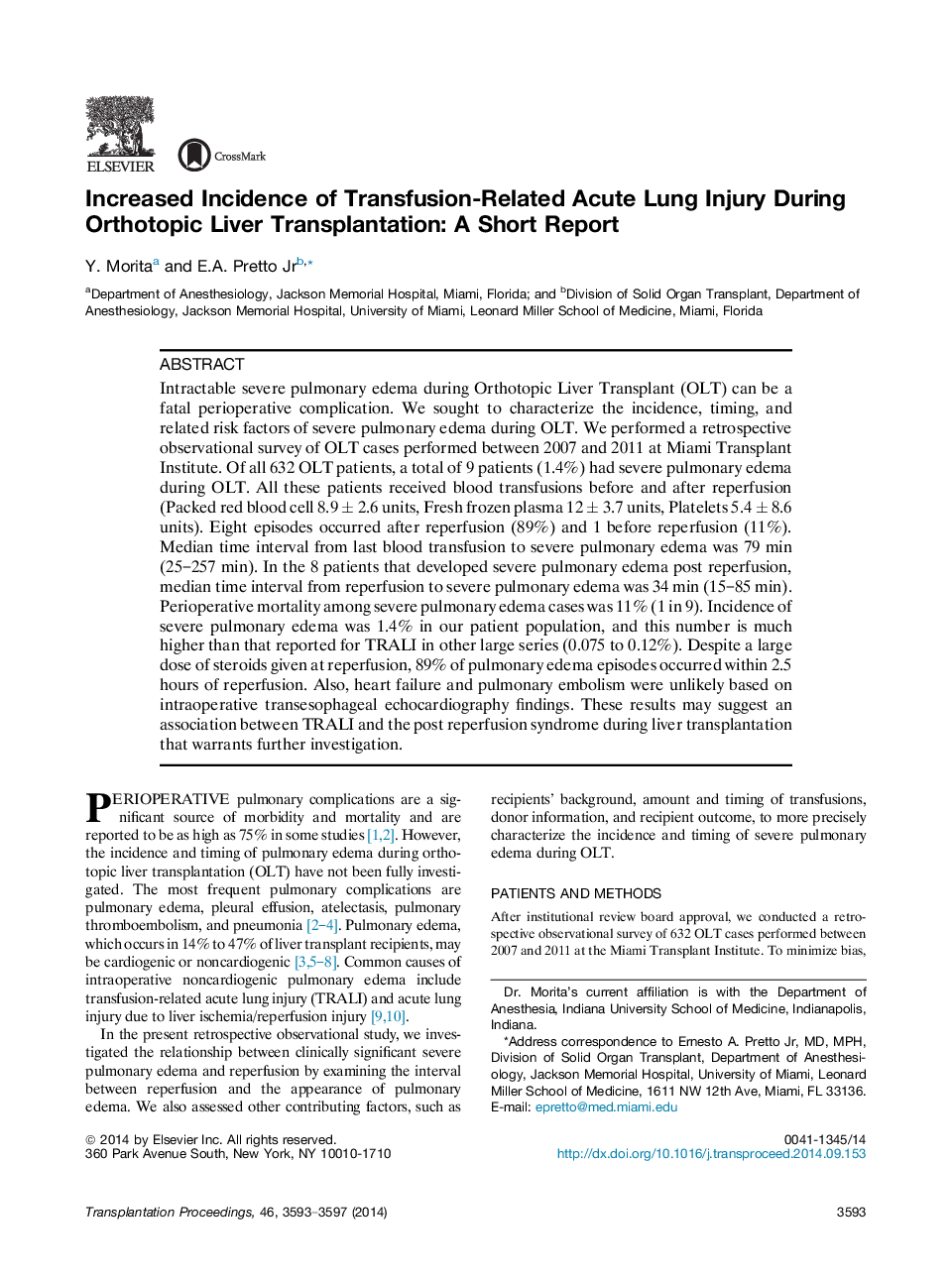| Article ID | Journal | Published Year | Pages | File Type |
|---|---|---|---|---|
| 6247728 | Transplantation Proceedings | 2014 | 5 Pages |
â¢In this retrospective observational study, we investigated the incidence, timing, and related risk factors of severe pulmonary edema during orthotopic liver transplantation (OLT).â¢The occurrence of severe pulmonary edema during OLT was much higher than the transfusion-related acute lung injury reported in general.â¢We speculate that ischemia/perfusion was the underlying condition that made transfusion-related acute lung injury more common in OLT, although it warrants further investigation.
Intractable severe pulmonary edema during Orthotopic Liver Transplant (OLT) can be a fatal perioperative complication. We sought to characterize the incidence, timing, and related risk factors of severe pulmonary edema during OLT. We performed a retrospective observational survey of OLT cases performed between 2007 and 2011 at Miami Transplant Institute. Of all 632 OLT patients, a total of 9 patients (1.4%) had severe pulmonary edema during OLT. All these patients received blood transfusions before and after reperfusion (Packed red blood cell 8.9 ± 2.6 units, Fresh frozen plasma 12 ± 3.7 units, Platelets 5.4 ± 8.6 units). Eight episodes occurred after reperfusion (89%) and 1 before reperfusion (11%). Median time interval from last blood transfusion to severe pulmonary edema was 79 min (25-257 min). In the 8 patients that developed severe pulmonary edema post reperfusion, median time interval from reperfusion to severe pulmonary edema was 34 min (15-85 min). Perioperative mortality among severe pulmonary edema cases was 11% (1 in 9). Incidence of severe pulmonary edema was 1.4% in our patient population, and this number is much higher than that reported for TRALI in other large series (0.075 to 0.12%). Despite a large dose of steroids given at reperfusion, 89% of pulmonary edema episodes occurred within 2.5 hours of reperfusion. Also, heart failure and pulmonary embolism were unlikely based on intraoperative transesophageal echocardiography findings. These results may suggest an association between TRALI and the post reperfusion syndrome during liver transplantation that warrants further investigation.
